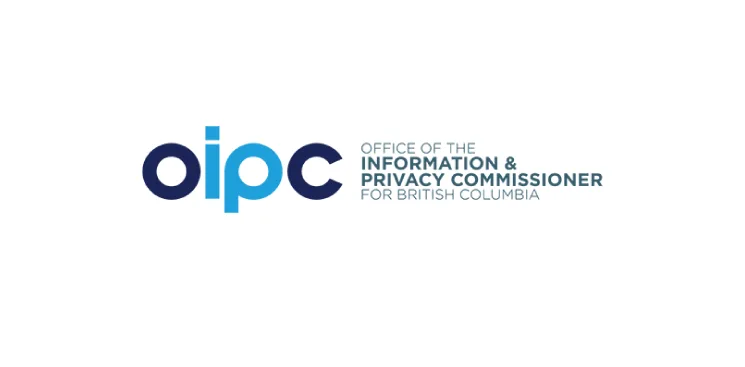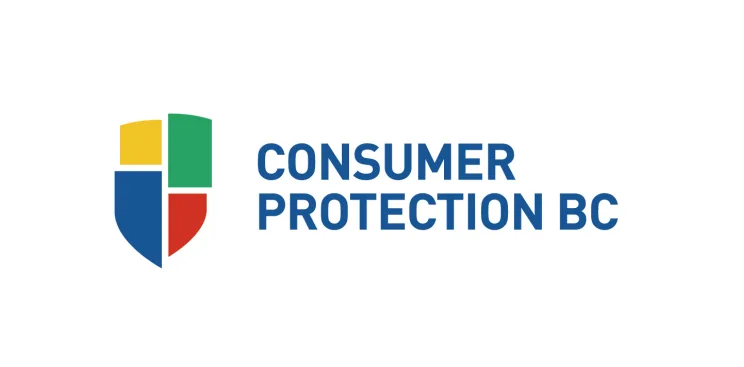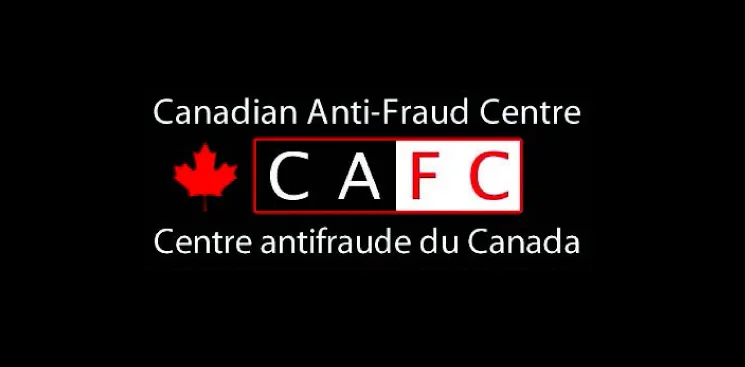
What percentage of Canadians have found errors on their credit report?
You order your credit report for the first time. It shows a late payment. But you’re sure you made that payment on time! It also lists an account you’ve never seen before. Mistakes like these are surprisingly common — and they can hurt your ability to borrow money, find work, or buy a home or car. Here are some steps you can take to fix errors on your credit report.
What you should know
A credit report details your history of paying bills and borrowing money. It helps businesses, banks, and other parties decide if you’re trustworthy and likely to pay on time. Two agencies prepare most credit reports in Canada: Equifax and TransUnion.
Under the law in BC, your credit report must be based on the best information available. A credit reporting agency must tell you where they got their information — a name and address for each source. If the agency can’t verify an item in your report, it must tell you that in writing.
Under the law in BC, some information can’t be part of your credit report:
information about any member of your family other than your spouse
your race, religious beliefs, skin colour, sexual orientation, ethnic background or political views
criminal convictions that have been discharged or pardoned
criminal charges that were withdrawn or dismissed
There’s also information that can’t be part of your credit report if it’s more than six years old:
a court judgment against you (unless you haven’t paid what you owe)
a criminal conviction
a bankruptcy (unless you’ve been bankrupt more than once)
any other negative information about you
Learn more about what can and cannot be part of your credit report.
"I applied for a mortgage and a line of credit. The bank turned me down. Apparently, there was an unpaid phone bill under the name ‘Marc Rogers’ on my credit report. That wasn’t my bill — it was someone else’s who has a similar name. The charge had been on my credit report for four years without me knowing."
– Mark, Vancouver, BC

Under BC law, you have the right to ask a credit reporting agency to fix any mistake you find in your credit report.
For example, let’s say your report shows you haven’t made regular payments on your phone bill, yet you know you have. You should ask the credit reporting agency to correct the error (and contact your phone company about it). See “Work out the problem,” below, for the steps to follow.
If the credit reporting agency agrees to make the correction, it must do so promptly. It must also send the new correct information to anyone who received your credit report in the last year. If it fails to do so, it must explain why, in writing. The credit reporting agency must add a note to your report that you asked for the information to be corrected. The note must include the correction that you requested.
Generally, the credit reporting agency has 30 days to respond to your request. If it refuses your request, it must tell you:
the reasons for the refusal
how to contact an employee who can answer your questions
that you may ask for a review of the decision within 30 days
Review your credit report regularly
Errors in your credit report can give lenders the wrong impression of you. They might also be a red flag that someone tried to steal your identity. To avoid these problems, review your credit report at least once a year. See our pages on ordering and taking charge of your credit report.
Under the law in BC, you can add an explanation to your credit report. The explanation must be 100 words or fewer. The credit reporting agency attaches it to your report and anyone who orders a copy sees it.
When you should add an explanation
You should add an explanation to your credit report if:
someone steals your credit card and uses it to take out loans
your report shows the debts of someone with the same name as you
you want to explain why you were late with a payment
If your credit report includes information you don’t recognize, you may be a victim of identity theft.
If you notice a suspicious charge, follow the steps in our guidance for if you’ve been scammed.
Contact the credit reporting agencies right away. Tell them about the suspicious charge. Discuss whether to have a “fraud alert” placed on your file. This tells lenders to contact you before they approve any loans on your account.
You may have to show ID and give a sworn statement to prove you’ve been a victim of fraud.
If someone has used your credit card, report it to your credit card issuer immediately. The law in BC says after you report your card as lost or stolen, you’re no longer responsible for any use of the card.
If someone used your credit card before you report it as lost or stolen, you’re only on the hook for $50 at most. However, many credit card issuers will waive that $50 charge.
When to use a "fraud alert"
Ask the credit reporting agencies to put a “fraud alert” on your credit report if any of the following happen:
you're the victim of fraud
your wallet is stolen
you have a home break-in
Work out the problem
Review the information in your credit report. Look for:
mistakes in your personal information, such as a wrong address or date of birth
errors relating to payments, such as a payment you made on time that is shown as late
negative information about you that’s more than six years old
accounts listed that you never opened — this could mean identity theft
Order your credit report once a year
Ask the main credit reporting agencies Equifax and TransUnion to send you a free copy of your credit report once a year. Order your report from both agencies, as they might have different information. For the steps to follow, see our page on ordering your credit report.
If you think there’s a mistake in your credit report, start building your case. Gather proof. Make copies of any receipts, statements, or other documents that support your position.
If your complaint is about an expired item in your credit report that shouldn’t be there, dig up a supporting document with the date on it.
Send the credit reporting agency a letter. Ask them to fix or remove the mistake in your credit report. Be specific about what information you want changed.
Your letter should include:
your full name
your social insurance number (SIN) or major credit card number
your date of birth
your current address
your previous address, if you’ve lived at your current address for less than two years
the name of the company you’re having the dispute with
the reason for your dispute — for example, “I paid this charge” or “I did not open this account”
The letter should also ask that the agency fix the report, and that a copy of the letter be kept in your credit file.
Any proof you have to support your position, include it with the letter. For example, if your credit report says you missed payments on your phone bill, attach copies of your bank statements showing the payments.
Instead of drafting a letter from scratch you can fill out a form requesting a correction. Equifax and TransUnion both have forms on their websites that you can download.
When you send the letter or update form to the credit reporting agency, keep a copy for yourself.
The agency must keep your letter on file. When someone asks to see your credit report, they will discover that you dispute the information.
Now the ball’s in the credit reporting agency’s court. By law they cannot ignore you. They must acknowledge receipt of your request to fix the mistake. And they must tell you what they plan to do.
When the agency receives your request it will contact the creditor that reported the information.
If the creditor agrees there’s been an error, the credit reporting agency will update your credit report. The agency must also send the correct information to anyone who received your credit report in the last year.
If the creditor stands by the original information in the credit report, the reporting agency still must add a note to the report. The note must include the correction you requested.
The credit reporting agency can’t simply turn down, without explanation, your request to fix a mistake. It must tell you why it refused and provide a staff contact who can answer your questions.
Hold off applying for credit
Don’t apply for credit while a credit reporting agency is looking into a mistake in your credit report. Generally, the agency has 30 days to respond to a complaint about a mistake.
If you still disagree with the information in your credit report, contact the creditor directly. The creditor may have made a mistake. Credit reporting agencies can’t fix mistakes made by creditors. They only report what the creditors have told them — or fix information you’ve been able to prove is wrong.
Tell the creditor about the error in your credit report. Ask them to check their files. Ask them to supply the credit reporting agencies with the latest information.
If you still disagree with the information in your credit report, you can add an explanation to your credit report. The explanation must be no more than 100 words. The credit reporting agency attaches it to your report and anyone who orders a copy sees it.
For Equifax, send your explanation in writing to their consumer relations department. For TransUnion, send it to their consumer relations department. TransUnion refers to the explanation as a consumer statement.
You must also send two pieces of personal identification. Together, the explanation and your identification must include your name, current address, date of birth, and signature.
If the credit reporting agency refuses your request to fix a mistake, you can ask the BC information and privacy commissioner to review the decision. You must ask for the review within 30 business days of receiving the agency’s refusal.
You must ask for the review in writing. You can use the form on the privacy commissioner’s website or write a letter or email. Make it clear what you’re asking the commissioner to review.
Include a copy of your request for a correction and the credit reporting agency’s response.
The commissioner will decide whether to investigate. The commissioner has the power to order the agency to fix your file.
For some situations, you can complain to Consumer Protection BC. They can help where information has been on your credit report for over six years, or where you were denied the opportunity to explain yourself.
On receiving your complaint, Consumer Protection BC will review it and decide whether to investigate. If they find the credit reporting agency is at fault, the agency can be ordered to fix your file or pay you back any money you lost.
Common questions
The steps are the same as fixing mistakes on a credit account. See the “Work out the problem” section, above.
First off, contact the credit reporting agency. For a roadmap, see the “Work out the problem” section, above.
You have a right to sue the credit reporting agency for “damages.” In this case, you could ask for “compensatory” damages as payback on money you lost because you didn’t get the loan. You could also ask for “general” damages to pay you back for any non-money loss, like humiliation.
If criminal charges are brought against the credit reporting agency because of the mistake, you have the right to request compensation. Ask the court to order that the agency cover you for your loss. The amount would depend on how much money you lost because you didn’t get the loan.
You don’t have the right to both sue for damages and ask for compensation in a criminal matter.
Consider getting legal advice
If you’ve been denied a loan because of an error in your credit report, you should seek advice from a lawyer on your options. There are options for free legal advice.
You may be the victim of identity theft. Someone may be trying to open credit cards, apply for loans, or get other credit under your name.
But it might just be a clerical error. Follow the steps in if you think you’ve been the victim of a scam or identity theft.
Who can help

Office of the Information and Privacy Commissioner
You can ask them to review a credit reporting agency’s decision.

Consumer Protection BC
Agency that can help with certain problems with credit reports, like dated info.

Canadian Anti-Fraud Centre
Agency that collects information on fraud and identity theft.



